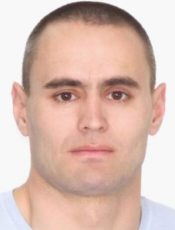Former Polish president Bronislaw Komorowski (he was officially replaced by Andrzej Duda on 6 August) has awarded members of the Union of Ukrainians in Poland (UUP), including its leader Piotr Tym, with the Knight’s Cross of Polonia Restituta and the Silver Cross of Merit. Komorowski did not fail to point out that those awarded had made a notable contribution to the development of Polish-Ukrainian relations. But what kind of contribution exactly?
Throughout its entire history, the Union of Ukrainians in Poland (founded in the 1950s and originally called the Ukrainian Sociocultural Association) has not once condemned the criminal acts of the OUN-UPA and Ukrainian SS divisions. UUP representatives have always supported the cult of OUN-UPA among Polish Ukrainians, denying the guilt of Ukrainian nationalists for the 1943 massacre of Poles in Volhynia. Moreover, the official publication of the UUP, Nashe Slovo, is financed by the Polish Ministry of Culture and National Heritage. In the 1990s, a UUP activist, a certain Vasil Vasiliv, called for help in returning ‘Ukrainian-ness’ to south-eastern areas of Poland in an article entitled «Lemkivshchyna at the Crossroads». The UUP is still working at this even now.
The Polish authorities, meanwhile, are turning a blind eye in the hope of deriving foreign policy dividends from the ideology of Ukrainian nationalism. For the gamble to definitely succeed, UUP members are being promoted to senior positions. Thus the parliamentary support group for Ukraine includes Polish Sejm deputy Miron Sycz from the Civic Platform Party (the party to which Bronislaw Komorowski also belongs), who is the son of a UPA militant sentenced to death by a Polish court in 1947.
In 2011, the UUP filed a complaint with the ECHR requesting that Poland be punished for the deportation of the Ukrainian population in 1947 (Operation Vistula). The court rejected the complaint but in the same year, the UUP published a human rights bulletin accusing the Polish media of distorting the image of OUN-UPA «fighters».
Since then, the amount of information being pushed onto Polish society by the UUP has grown continuously. Monuments in honour of the OUN-UPA have begun to appear in provinces in eastern Poland, while attacks on dissenting Polish authors like Maria Pyz-Pakosz, who has referred to nationalist Ukraine as «a diseased state», or Catholic priest Tadeusz Isakowicz-Zaleski, in a debate with whom the UUP leader decorated by Komorowski, Piotr Tym, defended Bandera and argued that the Polish genocide in Volhynia never took place, have become more frequent.
Little by little, the UUP has reinvented itself from a group of marginals into a full-fledged participant in the social and political processes in Poland.
In the border city of Przemyśl (the UUP has dreams of transforming this city into the capital of Polish Ukrainism), the local police are involving UUP members as experts on the national question (!). One of these, Bogdan Guk, delivered a not-guilty verdict regarding the public display of the UPA flag by Ukrainian students against whom criminal proceedings had been initiated.
The Union of Ukrainians in Poland operates in cahoots with Oleh Tyahnybok’s Svoboda party. Vasily Pavliuk, a high-ranking functionary in the party (currently the Consul General of Ukraine in Lublin where the headquarters of the joint Lithuanian–Polish–Ukrainian Brigade ‘LitPolUkrBrig’ is located) supported Guk’s ‘expert’ decision and even visited the Przemyśl police station in person.
Relying on support from the leaders of districts in western Ukrainian, the UUP and Svoboda are making noticeable attempts to create a cross-border Przemyśl-Lviv «Ukrainian axis». The activities of the Ukrainian Consul General in Lublin, Pavliuk, along with his nationalist colleague Alexander Bachik (Honorary Consul of Ukraine in Przemyśl) are aimed at strengthening the positions of Ukrainian nationalists in Poland’s Transcarpathian provinces.
Following events in Mukachevo in July 2015, when militants from the nationalist organisation Pravy Sektor exchanged fire with Ukrainian police then fled to the Polish border, Poles are once again recognising the dangers of Ukrainian nationalism. Hungary and Slovakia subsequently declared they would be reinforcing their borders with Ukraine with additional military detachments.
The Polish government took no action for a long time, although the area where the shooting took place is just 60 km from the nearest Polish village of Ustrzyki Górne It later sent reinforcements to the border, but did so somewhat quietly, apparently so as not to upset Kiev.
Seeing such passivity from Warsaw, Polish patriots have organised voluntary patrols to protect vulnerable corridors on the Polish-Ukrainian border. The UUP reacted instantly. The several Polish military units based in Przemyśl and the build-up of forces along this section of the border has evidently not escaped the notice of UUP activists. A member of the union’s main council, Miroslav Cech, has called what took place in Mukachevo an act of provocation aimed at igniting a Polish-Ukrainian conflict and called on Warsaw to adopt a hard-line response to… the propagandist activities of so-called Donbass «separatists» honouring the memory of the victims of the Volhynia massacre.
At the present time, the Union of Ukrainians in Poland has virtually monopolised the role of mediator between the Ukrainian diaspora, Ukraine and Poland, while Warsaw is repeating mistakes of the past by placing a double-edged bet on Ukrainian nationalism. Back then, many Poles paid for it with their lives. What will happen this time, only time will tell.









